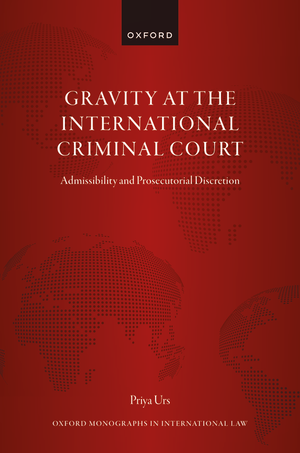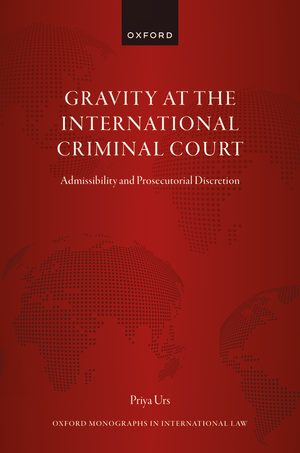Gravity at the International Criminal Court
INTRODUCTORY BLOG
Published on 6 August 2024
Gravity at the International Criminal Court: An Introduction
by Priya Urs
I began thinking about the selectivity of the investigation and prosecution of international crimes in 2014, when I worked with the Afghan Independent Human Rights Commission to strengthen its role in monitoring human rights violations across the country. In reality, the Commission was often dealing with allegations of international crimes. My colleagues at the Max Planck Foundation for International Peace and the Rule of Law worked in not dissimilar contexts: Cambodia, Colombia, Mali, Sudan, South Sudan and other parts of the world where people had suffered or continued to suffer as a result of armed conflict or other forms of violence. It was impossible to ignore the contrast between the sheer geographical scope of allegations of relevant conduct and the relatively limited capacity for their investigation and prosecution, whether before international or national criminal courts.
Published on 6 August 2024
Faith in Gravity
by Margaret M. deGuzman
The concept of gravity—that some crimes are especially serious—is at the heart of the International Criminal Court (ICC or Court) regime. Among other things, it helps to determine which situations and cases the ICC investigates and prosecutes, and which are left to national courts or, when none are available, to impunity. In other words, gravity aims to ensure that the ICC focuses its efforts on ‘the most serious crimes of international concern’, which are the subjects of its mandate.
Available on 7 August 2024
Law versus Policy? Exploring the Meaning of Gravity before the International Criminal Court
by Patryk I. Labuda
Priya Urs’ new book is an important contribution to the literature on the International Criminal Court (ICC or Court). In under two hundred pages, she manages to capture the ins and outs of the ICC’s first 20 years of case law and advances an ambitious argument about the function of gravity in the Rome Statute.
Available on 8 August 2024
Gravity at the International Criminal Court: Admissibility and Prosecutorial Discretion by Priya Urs: A significant contribution offering a refreshing guidance towards the assessment of the gravity criterion to insure prosecutorial consistency
by Martha M Bradley
Gravity at the International Criminal Court: Admissibility and Prosecutorial Discretion by Priya Urs is a refreshing response to a lacuna in the literature concerned with the gravity criterion for trial admissibility under Article 17(1)(d) of the Rome Statute. The term ‘refreshing’ is employed to describe the monograph as it does not only systematically and rigorously explore Article 17(1)(d), but it contributes original thought on the application and function of the ‘gravity criterion’. The purpose of Article 17(1)(d) of the Rome Statute is to aid the Prosecutor in determining whether cases are ripe for investigation and to aid Pre-Trial Chambers in determining if cases brought before the International Criminal Court (ICC) are ‘admissible’.
Available on 8 August 2024
Gravity at the International Criminal Court: A Response
by Priya Urs
I am grateful to Meg deGuzman, Patryk Labuda and Martha Bradley for generously giving their time to reflect on Gravity at the International Criminal Court. Each of them raises a variety of issues relating to the book’s arguments, methodology and contributions in the light of the practice of the International Criminal Court (ICC, the Court). In particular, deGuzman and Bradley draw attention to the advantages and disadvantages of the Court’s indicator-based approach to the assessment of gravity in Article 17(1)(d), which the book argues should be streamlined for the sake of greater consistency. In this post, I will briefly respond to three issues that arise in the contributions.






